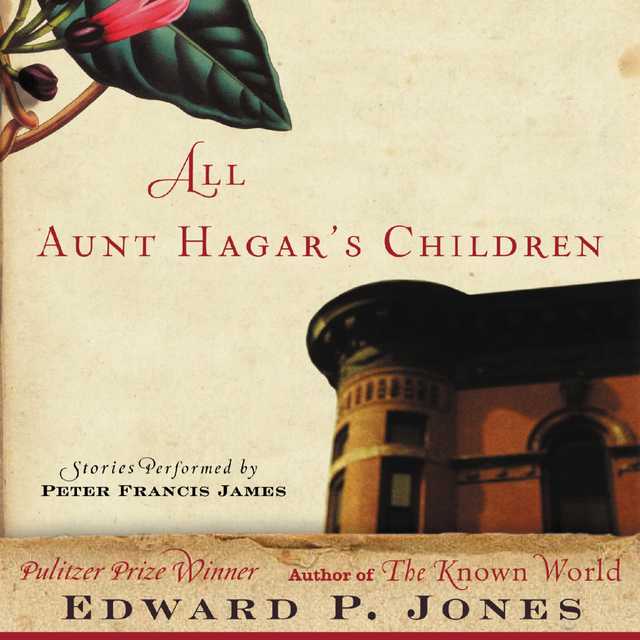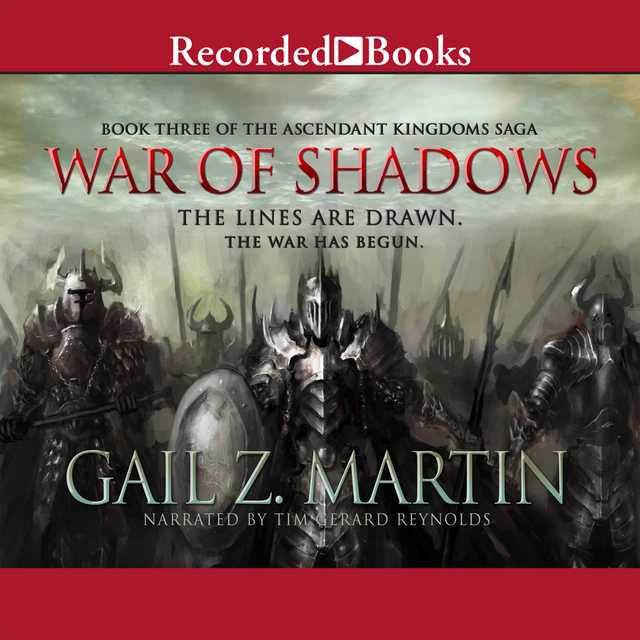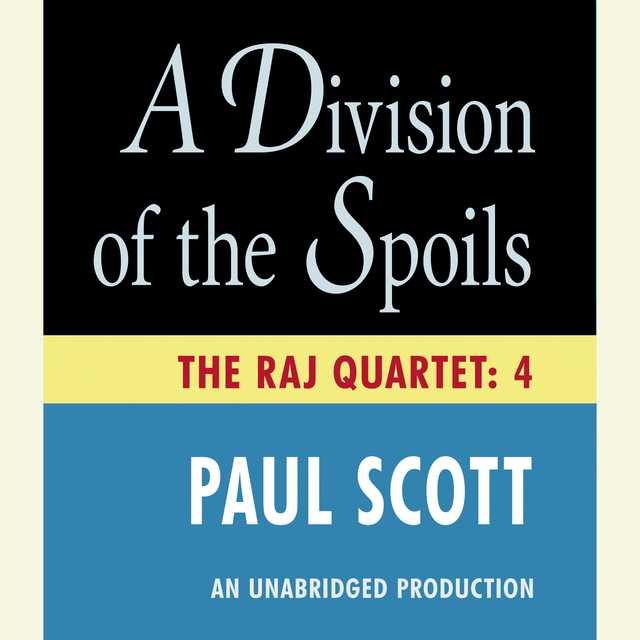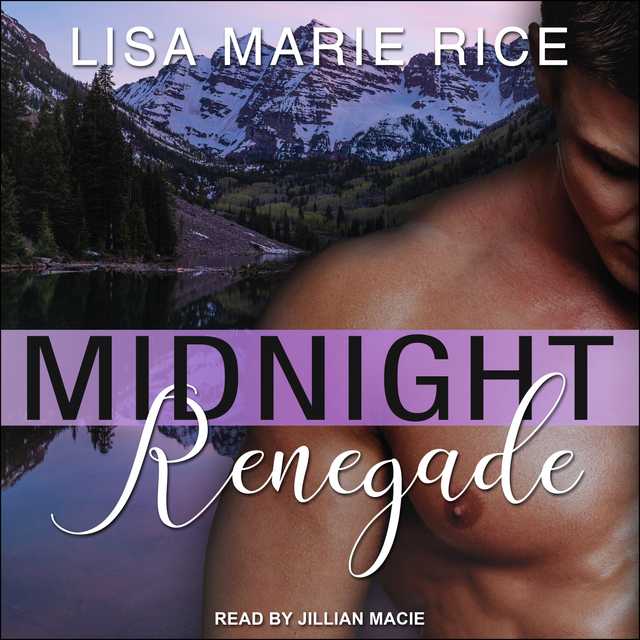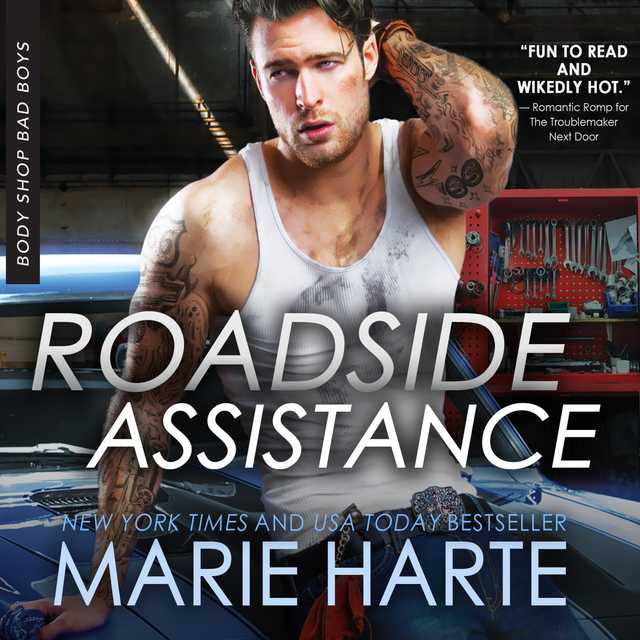All Aunt Hagar’s Children Audiobook Summary
In fourteen sublime stories, the bestselling and Pulitzer Prize-winning author of The Known World shows that his grasp of the human condition is firmer than ever.
Returning to the city that inspired his first prizewinning book, Lost in the City, Jones has filled this new collection with people who call Washington, D.C., home. Yet it is not the city’s power brokers that most concern him but rather its ordinary citizens. All Aunt Hagar’s Children turns an unflinching eye to the men, women, and children caught between the old ways of the South and the temptations that await them in the city, people who in Jones’s masterful hands, emerge as fully human and morally complex, whether they are country folk used to getting up with the chickens or people with centuries of education behind them. With the legacy of slavery just a stone’s throw behind them and the future uncertain, Jones’s cornucopia of characters will haunt readers for years to come.
Other Top Audiobooks
All Aunt Hagar’s Children Audiobook Narrator
Peter Francis James is the narrator of All Aunt Hagar’s Children audiobook that was written by Edward P. Jones
Peter Francis James has starred in numerous Broadway and off-Broadway productions, as well as on such television programs as Law & Order: Special Victims Unit, New York Undercover and State of Affairs.
About the Author(s) of All Aunt Hagar’s Children
Edward P. Jones is the author of All Aunt Hagar’s Children
More From the Same
- Author : Edward P. Jones
- The Known World
- Lost in the City
- Publisher : HarperAudio
- Abraham
- American Gods [TV Tie-In]
- Dead Ringer
- House of Sand and Fog
- Prey
All Aunt Hagar’s Children Full Details
| Narrator | Peter Francis James |
| Length | 15 hours 1 minutes |
| Author | Edward P. Jones |
| Category | |
| Publisher | HarperAudio |
| Release date | August 29, 2006 |
| ISBN | 9780061134609 |
Additional info
The publisher of the All Aunt Hagar’s Children is HarperAudio. The imprint is HarperAudio. It is supplied by HarperAudio. The ISBN-13 is 9780061134609.
Global Availability
This book is only available in the United States.
Goodreads Reviews
Carole
July 10, 2014
Edward P. Jones was lionized with the publication of The Known World, but that book kind of left me cold. I couldn't understand what all the excitement was about, unless it was the novelty of a black man writing about a black man who owned black slaves in nineteenth century America. The writing was stiff and the story was not gripping or even very memorable. But I changed my opinion about this author when I read his short stories. This is where his real talent lies, in writing about ordinary folks in Washington, DC, where Jones has dwelled all his life. He breathes life into his characters, who are three dimensional, flawed and complex. They are lovingly portrayed and dignified even at their worst. Jones displays an easy familiarity with a wide cast of characters, whom you feel he has probably grown up with. He brings us right down to street level, and in many of the stories he traces their steps by spelling out the streets and corners that they pass. It is an earlier Washington, D.C. that most readers are not familiar with, but you can almost picture the old neighborhoods, long gone, in sepia tones, that thousands of blacks called home. Or tried to call home, as many had come from the South and reminisced about the food and gentility of the southern ways. Jones finds the human streak in the most callous of persons. In Old Boys, Old Girls, the hardened ex-con finds it impossible to accept the help of his family, but seeks a seedier, solitary life on the fringes. When an old girlfriend, who has degenerated into a squalid existence and does not recognize him, passes away in his flop house, he meticulously and lovingly cleans up the room she died in and leaves the body washed, dressed and dignified. Then he moves on. It is a touching scene and typical of the tenderness with which Jones can evoke the human spirit.
Roxane Beth
January 22, 2008
These stories are perfect. That's all I can say. "The Devil Swims Across the Anacosta" blew my mind and rendered me helplessly amazed. Not kidding or exaggerating. I read it with lips ajar, in much the way I imagine all those boys out there read "Lolita" (hate that book, love everything else by Nabokov though and have read much of it. How come no one gets as excited by his book King, Queen, Knave? or Pnin? There's a masterpiece.). Didn't read every single story. I want to save something for later. What I read was, as I said, perfect.
Andrea
January 16, 2008
Really beautiful, carefully crafted stories about life in DC. I liked The Known World a lot, but wasn't completely sold on Jones until this book. In All Aunt Hagar's Children, he weaves the fantastical together with the harsh realities of poverty, using rich prose and imagery.Even if you are not a fan of short stories (or fiction for that matter), I would recommend trying this book. Jones is such a talented writer that I would find myself stuck on sentences and phrases unable to move on (like when you find yourself playing a great new song on repeat).
Pamela
July 14, 2011
This is an extraordinary collection of stories about African-Americans in and around Washington D.C. from the time of early migrations from the South to roughly the 1980s. I read some of the stories before they were collected, in The New Yorker; others when the book first came out, still others only more recently, so that in piecemeal fashion I've now read a few of the pieces in the collection three or four times. I mention this because, though I was a wildly enthusiastic fan of Jones's previous books, Lost in the City and The Known World, I was initially disappointed by many of the tales here. I thought them diffuse and inconclusive. This was entirely due to the fact that they are in fact even richer and more complex than stories in Lost in the City and often can't be sufficiently appreciated on a first read. Jones often deals with such large swaths of time and so many characters that it can take a read or two just to absorb everything that's going on. It's on later reads that the delicacy and psychology and patterning of the stories begin to work their singular magic. Jones is going to be read decades and decades from now, when many writers more comfortable with and willing to exploit (or be exploited by) the media have come to seem less relevant.
Kathryn
September 11, 2020
I like some plot in my stories, and most of these stories were very light on plot. The endings were ambiguous and subtle; you couldn't always tell tell what, if anything, had changed.Still, I enjoyed the stories and intend to read more of Jones's work. What I really like about his writing is how he creates a world and puts you right in it. He writes almost exclusively about Black people in Washington DC in the 20th century. Especially when you read a whole book of his stories over a fairly short period of time, you feel like you begin to understand their world. He writes about both middle to upper-middle class Blacks and poor ones, people whose parents remember slavery and more modern people, recent immigrants to DC as well as those whose families have been in the capital for a couple of generations. The overall effect is of an epic history of a People, but it is told in the form of fiction about individual lives, most of them quite humble. I really liked the last story in this collection, "Tapestry." It was about a young bride on her way to DC with her new husband, who is a porter on the train they are travelling on. She has an experience that lets her know that DC will be different from the small southern town that she's coming from. It was appropriate that this was the last story in the book. It tells the reader that all the experiences of the DC residents in all the previous stories started from one brave ancestor who came north and had to learn to swallow humiliation, make compromises, soldier on through hardship, and survive.
robin
March 01, 2022
Hagar's ChildrenIn his highly-acclaimed volume of 14 stories, "All Aunt Hagar's Children", Edward P. Jones draws portraits of African Americans who have migrated from the South to Washington D.C. The stories are set from around the beginning of the 20th Century to the present day. The stories describe many types of people from young children to old men and women and from the poor and illiterate to the highly educated. They speak of loneliness and change, of the frustration, sexual and otherwise, that results from moving to a new urban place, of criminality and drugs, and of education. The stories are short but deeply textured, as in tapestries(the title of the final story). Characters, histories and sub-themes are realized in brief spaces.The writing style in these stories is a major factor in their success. All but two of the stories are told in the third person by an all-knowing narrator. (The exceptions are "Spanish in the Morning" told in the voice of a precocious young girl and the title story "All Aunt Hagar's Children told in the voice of a young Korean War veteran who hopes to move to Alaska in search of fortune and women.) The writing is full of Biblical allusions. Hagar, of course, was the concubine of the patriarch Abraham who was sent into the desert after she mocked the childlessness of Sarah who then became jealous of her. God spared Hagar and her children. The figure of Hagar is used her for the outsider and the outcast -- symbolizing the lives of the African American characters of the stories. The language of the stories in its richness, difficulty, and frequent elliptical character, particularly in its repetition and in its use of names, also owes a great deal to the Old Testament. There is also much in the stories that reminds me of the African American preacher of James Weldon Johnson's poem "God's Trombones". The rich, narrative voice of the stories is complemented by the contrasting voice of many of the characters with its slang, dialect, and frequent use of obscenity.The stories develop character and place. Jones shows the reader a Washington D.C separate from the world of national politics familiar to most Americans. I have lived in Washington D.C. for many years. Jones's depictions of neighborhoods, streets, landmarks, stores, and people had a deep sense of familiarity. They also helped me see the familiar aspects of my city in a new way. The characters are true and believable in their many responses to living in Washington.The stories I especially enjoyed included the first story "In the Blink of God's Eye" and the final story "Tapestries". Both these stories are set both in the rural South and in Washington, D.C., the former at the turn of the 20th Century and the latter in the 1930s. They both show the difficulties young married couples encounter with the change of place.The story "Old Boys Old Girls" describes the life of a young man who spends years in Lorton prison and his attempt to make a life for himself when he is released. Jones contrasts the life of his down-and-out protagonist with the lives of his wealthy and successful family. "A Poor Guatamalean Dreams of a Downtown in Peru" tells of a young poor girl who achieves great academic success but whose life has otherwise been filled with catastrophe and loss. "All Aunt Hagar's Children" is a complex story filled with themes of womanizing, murder, family, and wanderlust. It is a compelling portrait of African American life in the Washington D.C. of the early 1950s and it touches briefly as well upon African American -- Jewish relations.My two favorite stories were "Root Worker" and "Bad Neighbors" both of which explore themes of the search for love and finding it in unexpected places. The main character in "Root Worker" is a young successful woman doctor who gives up a planned vacation to travel South to consult a root doctor for what ails her mother. In the process, she learns a great deal about herself. "Bad Neighbors" tells the story of a large, poor family that rents a home in a middle-class black neighborhood where they are shunned and feared by their more successful neighbors. There are many turns as the story progresses, as the main character, a young woman who has become a nurse, gains a deeper understanding of people, status, and love.Jones' stories depict African American life in a loving, involved manner but without polemicizing or blatant social criticism. They are rooted in African American life but, in their treatment of love, sexuality, change, and character speak universally as well. The stories are dense and thoughtful and will reward careful reading. I am pleased that many of my fellow reviewers have enjoyed this outstanding book and written with insight about it.Robin Friedman
Rosana
August 25, 2008
I finished reading All Aunt’s Hagar Children a few days ago and had to come back to write a little blurb about it because those stories are still lingering around me. Of course, as in any collection of stories, 3 or 4 make a bigger impact then the rest, however I was quite surprised of how even this selection is overall. Not a small task in a book with 14 stories. Those are complex stories, with a multitude of secondary characters – neighbors, relatives, ancestors – showing up and furnishing the main story line with flavor and color and creating whole universes. The language is poetic. The prose is full of subtle – and not so subtle - magic realism: the devil shows up at a grocery store; a woman paints pictures of people dead in different countries and time; and yet another woman becomes blind while taking the bus home. But, most often, the stories are about people dealing with the tragedies of their lives, small and big disappointments and endless hope for whatever is to come. I do love short stories, a genre I realize not every reader appreciates. And Edward P. Jones excels at the genre. I did love his novel “The Known World”, but I crave for more of his short stories.
Roger
October 26, 2016
All Aunt Hagar’s Children is a collection of blistering and mesmerizing stories. The settings range across Washington D.C. throughout the breadth of the 20th century. The stories are full of unsettling revelations that produce adversity and change in the lives of a plethora of unforgettable characters. These characters encounter complex and moral struggles that test their ability to overcome the destabilizing forces of sadness, emptiness, and loss. Jones covers territory as disturbing as the horrors of violence and as sublime as the inexplicability of miracles. Heartfelt and haunting, these beautifully envisioned tales do not blink in the face of insurmountable hardship. Jones conjures up immense emotional power through his signature use of a spare and simple style. He is masterful at unveiling disturbing truths hidden in the human psyche. ,All Aunt Hagar’s Children is a harsh, uneasy, and stunning collection that takes hold of the human condition like a vise and uses a visionary compass to chart the tough road to haul towards healing and grace.
Kasa
August 20, 2017
Such a rich tapestry of story telling, mostly about members of the generation of those of the great migration who settle in Washington DC. Beautifully written, some quite haunting. Took a while since each story should be savored.
Bryan--The Bee’s Knees
July 07, 2020
I originally began this book several years ago, but never made it all the way through. That was less about the quality of the book than it was about my impatience as a reader. Because it had been so long since I'd read the first few stories, I started over, reading one story a day in order avoid the fatigue that sets in for me when reading a single author collection. What I did remember about the collection wasn't all that favorable--basically, that it had been 'just okay'. When I re-started, I had that same feeling to begin with--in fact, I found my old bookmark, and didn't remember most of the stories that I'd previously read.This time, however, once I got into the third story or so, I really started to enjoy it. I'm not sure what the difference is--my maturation as a reader maybe, or just that I'm in a position where I enjoy Jones' style more now than I did a few years ago. All of the stories center around African-American characters living in the Washington D.C area during the 20th century, and there are several themes Jones returns to over and over--the cultural bonds that many of the characters shared with friends and families they left behind in southern states, the difficulty of creating new cultural norms in Washington, the disillusion many found in Washington after the promise of a new start, how relationships between men and women changed over the years, as well as several others. What emerges is a kaleidoscope of images of a people in a time and place that drew me in further the more I read. I can't say what particularly impressed me about the stories--Jones' stories are well-crafted, though some of his stylistic tics became more obvious as the stories went on. Still, well-crafted stories are not always enough, and probably what was more captivating to me was the glimpse into African-American culture that is defined on its own terms. Race relations are threaded throughout the book--I don't think a book like this could be written without acknowledging injustices--but this is not a book about how African-Americans manage to live in a world that has victimized them. Rather this is a book about how African-Americans live in the world. It's the humanity of the characters that drew me in--some good, some not so good, but in all, just a mixture. I had long ago decided I didn't need to read Jones' book The Known World--I'd heard the synopsis and thought that was probably enough. Now, after enjoying this collection of short-stories so much, I've reconsidered that idea. I'll also be looking for his other collection of stories, Lost in the City
Michael
September 01, 2012
I don't read too many collections of short stories, but Edward Jones, winner of the Pulitzer for his novel, "The Known World," is a master storyteller. Hagar is a biblical figure. She was the slave of Sarah who was married to Abraham, and Sarah thought she was too old to have children so she sent Hagar to Abraham, and they had a child named Ishmael. Later, Sarah did have a child named Isaac, who was supposed to be the one sent to make Abraham the father of all nations. Ishmael was banished to the desert where it is believed he became the father of the Arabs.Using the name Hagar, directly comments on the legacy of slavery, and the voice given to the voiceless. In the fourteen short stories, we learn about African-Americans and their culture in contemporary Washington, DC. He writes using a deft hand, writing about a sense of the magical, creating worlds few of us can imagine. That's the true strength of his work. It ransports us to another time and place.
J.C.
January 31, 2019
It's been a while since I read this, but I'm putting it here, now. When I learned Edward P. Jones writes in this kind of monkish, secluded state for a week to a few months, it made perfect sense. He has these greater motifs that he threads carefully into these short-but-feel-long stories where he keys in details with flashbacks and flash-forwards in a way that reads seamlessly but, in reality, is doing all this work to make each story actually feel like a world. On careful reading, you can key into certain spiritual themes that make for a whole dimension of depth I really enjoyed. I don't have any real sense of what Jones was going for in so much as 'tone' is concerned. Where the author stands and what he was going for remain in a state of mystery for me, but it doesn't feel unsatisfying. In a way it defines the thing.
Matthew
June 09, 2011
This collection of stories deals with many of the same themes as Jones' other collection -- namely the African-American experience as it unfolds in and around Washington, D.C. I found the prose of this collection to be denser and infused with more symbolism (some biblical, as the title suggests) and at times, magical elements, in comparison to Lost in the City. I would definitely recommend it as much as Lost in the City, but I think it would be smart to read this one after you've been introduced into Jones' world. Jones is really a master at making daily life, with its minor disappointments and cruelties (and the occasional joy) feel crushingly/euphorically epic.
Anna
March 13, 2010
Jones has a way of making history a part of the present; these short stories are dense, and each story seems to tell many stories besides the one which is its focus. I'm not sure I'm doing a good job of getting across the feel of these stories: they each seem to have such a weight to them; all of his characters carry not only their present moments, but their pasts and their possible futures around with them, and Jones makes the reader feel this. For the most part, these stories are centered around perfectly ordinary moments, and this is the other part of what I loved about the book: none of these ordinary moments, or ordinary people, feels ordinary.
Frequently asked questions
Listening to audiobooks not only easy, it is also very convenient. You can listen to audiobooks on almost every device. From your laptop to your smart phone or even a smart speaker like Apple HomePod or even Alexa. Here’s how you can get started listening to audiobooks.
- 1. Download your favorite audiobook app such as Speechify.
- 2. Sign up for an account.
- 3. Browse the library for the best audiobooks and select the first one for free
- 4. Download the audiobook file to your device
- 5. Open the Speechify audiobook app and select the audiobook you want to listen to.
- 6. Adjust the playback speed and other settings to your preference.
- 7. Press play and enjoy!
While you can listen to the bestsellers on almost any device, and preferences may vary, generally smart phones are offer the most convenience factor. You could be working out, grocery shopping, or even watching your dog in the dog park on a Saturday morning.
However, most audiobook apps work across multiple devices so you can pick up that riveting new Stephen King book you started at the dog park, back on your laptop when you get back home.
Speechify is one of the best apps for audiobooks. The pricing structure is the most competitive in the market and the app is easy to use. It features the best sellers and award winning authors. Listen to your favorite books or discover new ones and listen to real voice actors read to you. Getting started is easy, the first book is free.
Research showcasing the brain health benefits of reading on a regular basis is wide-ranging and undeniable. However, research comparing the benefits of reading vs listening is much more sparse. According to professor of psychology and author Dr. Kristen Willeumier, though, there is good reason to believe that the reading experience provided by audiobooks offers many of the same brain benefits as reading a physical book.
Audiobooks are recordings of books that are read aloud by a professional voice actor. The recordings are typically available for purchase and download in digital formats such as MP3, WMA, or AAC. They can also be streamed from online services like Speechify, Audible, AppleBooks, or Spotify.
You simply download the app onto your smart phone, create your account, and in Speechify, you can choose your first book, from our vast library of best-sellers and classics, to read for free.
Audiobooks, like real books can add up over time. Here’s where you can listen to audiobooks for free. Speechify let’s you read your first best seller for free. Apart from that, we have a vast selection of free audiobooks that you can enjoy. Get the same rich experience no matter if the book was free or not.
It depends. Yes, there are free audiobooks and paid audiobooks. Speechify offers a blend of both!
It varies. The easiest way depends on a few things. The app and service you use, which device, and platform. Speechify is the easiest way to listen to audiobooks. Downloading the app is quick. It is not a large app and does not eat up space on your iPhone or Android device.
Listening to audiobooks on your smart phone, with Speechify, is the easiest way to listen to audiobooks.

